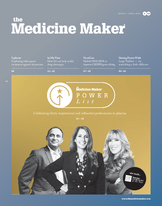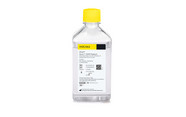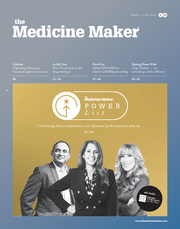American Patients First?
Will President Trump’s prices plan deliver for America’s patients?
Last month, President Trump launched his plan to reduce drug prices for Americans (1). “American Patients First” would have Medicare Part D plan sponsors negotiate lower drug prices, and force drug companies to include list prices in their advertisements. It also set out measures to prevent foreign governments “free-riding off American investment in innovation.” But the plan did not call for Medicare price negotiations or allowing Americans to purchase drugs from abroad – as Trump advocated on the campaign trail. Is the plan a workable set of proposals to reduce prices or a bit of a damp squib? We asked five experts for their views.
Charles Silver & David A. Hyman, adjunct scholars at the Cato Institute and professors at the School of Law at the University of Texas at Austin and the Georgetown University Law Center, respectively. Their book Overcharged: Why Americans Pay Too Much For Health Care will be published this month.
“After President Trump announced his plan for reining in prescription drug prices, shares in drug companies spiked (2). Wall Street had feared that big changes were afoot, but Trump’s plan includes few. Even if Trump succeeds in making foreign drug prices higher, drug companies won’t respond by lowering prices in the US.
“There are ways to fix this problem. The US could allow drug wholesalers to import generic drugs that have been approved in other developed countries. It could allow Americans to import prescription drugs from abroad. It could prohibit drug makers from selling their products at higher prices in the US than they do elsewhere. Trump’s plan neither included any of these measures nor explained why they wouldn’t work.
“That said, Trump’s plan does include several promising ideas – which though individually modest may add up in the long run to material savings. But the best, and probably the only, way to discipline drug prices is to give people the power to decide which drugs they want and how much they are willing pay for them. Trump could do this by putting Medicare on a fixed budget, and then giving the program’s dollars to eligible seniors, who would decide how to spend them. With almost 60 million bargain-hungry seniors shopping for drugs, medical services, and insurance policies, the impact on health care prices and spending would be immediate and enormous.”
George Sillup, Chair and Associate Professor of Pharmaceutical and Healthcare Marketing at Saint Joseph’s University, USA.
“American Patients First (APF) introduces four strategies to reduce US drug prices: improved competition, value-based negotiation by federal programs, transparency of list prices and best-buy alternatives for Part D patient customers. While some have merit, e.g., elimination of Part D contracts that preclude pharmacists’ advice, others reflect a shallow understanding of the way medicines are acquired as part of healthcare delivery in the US. For example, better value-based negotiation won’t improve acquisition cost until Medicare does price referencing on list prices with both payers and manufacturers for generic and, especially, branded products. APF needs to expand how it will improve best-buy alternatives for Part D by working in conjunction with the FDA to address companies delaying generics. It also needs to consider how direct-to-consumer advertising can be used to communicate to patients about the way APF will be implemented.”
George Chressanthis, Principal Scientist, Axtria, USA.
“I am surprised by how quickly people have reached their conclusions about the blueprint – the devil is always in the details. Some have said the market has responded by raising pharma and pharmacy benefit manager stocks. Clearly the blueprint did not have direct government negotiation of Medicare prices, so the market may be reacting to the lack of this provision in the plan, though it doesn’t mean future iterations won’t have this provision. So it’s hard to interpret initial market signals, especially since the blueprint has many elements, each with varying effects on drug prices.
“Overall, my personal opinion is that a different system of drug pricing that allows for greater transparency, simplifies the current costly system of drug contracting and rebates, and moves the industry toward a greater emphasis on demonstrating drug value is a good public and business policy approach. As I previously noted in The Medicine Maker (3), Trump’s policy views toward pharma if enacted may be the change-agent the industry needs to provide for longer-term success.
“Finally, I think the timing of this announcement is not by chance. High drug prices is a bipartisan issue and among all issues recently polled (health and non-health issues), with high Rx drug prices being noted as the leading issue in the minds of people (4). The Republicans are going into the midterms with a lot of uncertainty, and I think Trump might be offering up this plan now to show voters, especially independents and even progressive Democrats, that his administration is trying to do something to tackle this complex and bipartisan issue.”
Dean Baker, Center for Economic and Policy Research
“Trump's plan can be best called ‘the pharmaceutical industry first.’ The main thrust of the proposal is to redouble US efforts to force other countries to force our trading partners to pay more money for drugs to the pharmaceutical industry. Most likely this will be ineffective, but insofar as it does succeed, it will have at best a trivial impact on the amount the industry spends on innovation.
“Furthermore, as anyone familiar with negotiations understands, the concessions we can force these countries to make on drug prices will be at the expense of concessions in other areas. This is likely to mean, for example, that because our trading partners have to pay more money to Merck and Pfrizer for their drugs, they will be buying fewer cars and airplane parts from the United States. Trump is proposing to increase pharmaceutical industry profits at the expense of ordinary workers.”
- Department of Health and Human Services, “American Patients First”, (2018). Accessed May 30, 2018. Available at: bit.ly/2rC3hJQ.
- Stat News, “Trump promised to bring pharma to justice. His speech sent drug stocks soaring”, (2018). Accessed May 30, 2018. Available at: bit.ly/2IeYVzi.
- KFF, “Kaiser Health Tracking Poll – March 2018”, (2018). Accessed May, 2018. Available at: kaiserf.am/2q2sFZj.

Over the course of my Biomedical Sciences degree it dawned on me that my goal of becoming a scientist didn’t quite mesh with my lack of affinity for lab work. Thinking on my decision to pursue biology rather than English at age 15 – despite an aptitude for the latter – I realized that science writing was a way to combine what I loved with what I was good at.
From there I set out to gather as much freelancing experience as I could, spending 2 years developing scientific content for International Innovation, before completing an MSc in Science Communication. After gaining invaluable experience in supporting the communications efforts of CERN and IN-PART, I joined Texere – where I am focused on producing consistently engaging, cutting-edge and innovative content for our specialist audiences around the world.


















